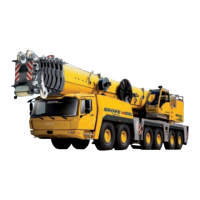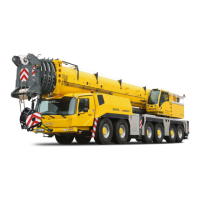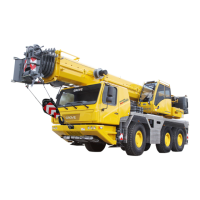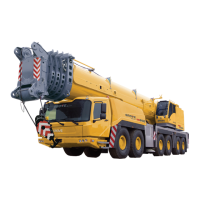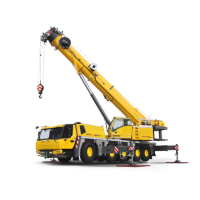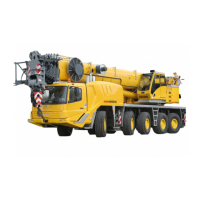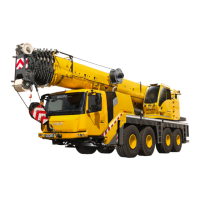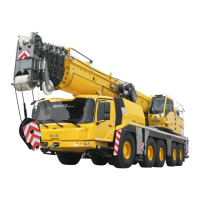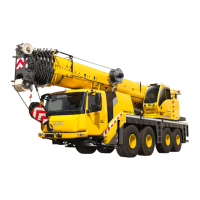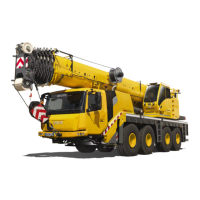Malfunctions in driving mode
7.4 Wheels and tyres
7 - 14 3 112 xxx en Operating Manual GMK6300L
xx.xx.xxxx
Removing
a damaged wheel
• Switch off the suspension; à p. 5 - 18.
• Raise the truck crane with the outriggers until the wheel to be changed
just barely leaves the ground.
• Remove the wheel nuts (1) to (12) and remove the damaged wheel.
• Secure the wheel against falling over if you set it down temporarily.
On the spare
wheel holder
When changing a wheel, you must remove the spare wheel from the spare
wheel holder and mount the damaged wheel on to the spare wheel holder.
You can use a chain hoist or the truck crane to lift the wheel.
• If you lift the wheel with the truck crane, then:
– Support the truck crane and
– Enter the current rigging mode on the RCL.
• Lift the spare wheel using only lifting gear with sufficient load bearing
capacity;
à Spare wheel, p. 1 - 10.
G
Risk of accidents due to a wheel falling over!
When unscrewing the final lug nuts, the wheel can slip off the hub and fall
toward you. Secure the wheel and step back quickly if the wheel begins to
tip.
G
Danger of overturning if the truck crane is free-standing!
Always support the truck crane on outriggers before rotating the
superstructure.
If the tyres are damaged, you may not operate the truck crane in the
Free on
wheels
working position.
G
Risk of overturning while slewing!
Always check before slewing whether slewing is permitted in the truck
crane's current rigging mode (counterweight, outrigger span, working
radius).
Correct the rigging mode if necessary;
à Slewing with rigged counterweight,
p. 12 - 83.
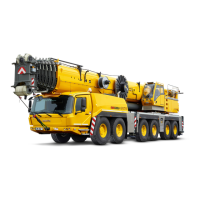
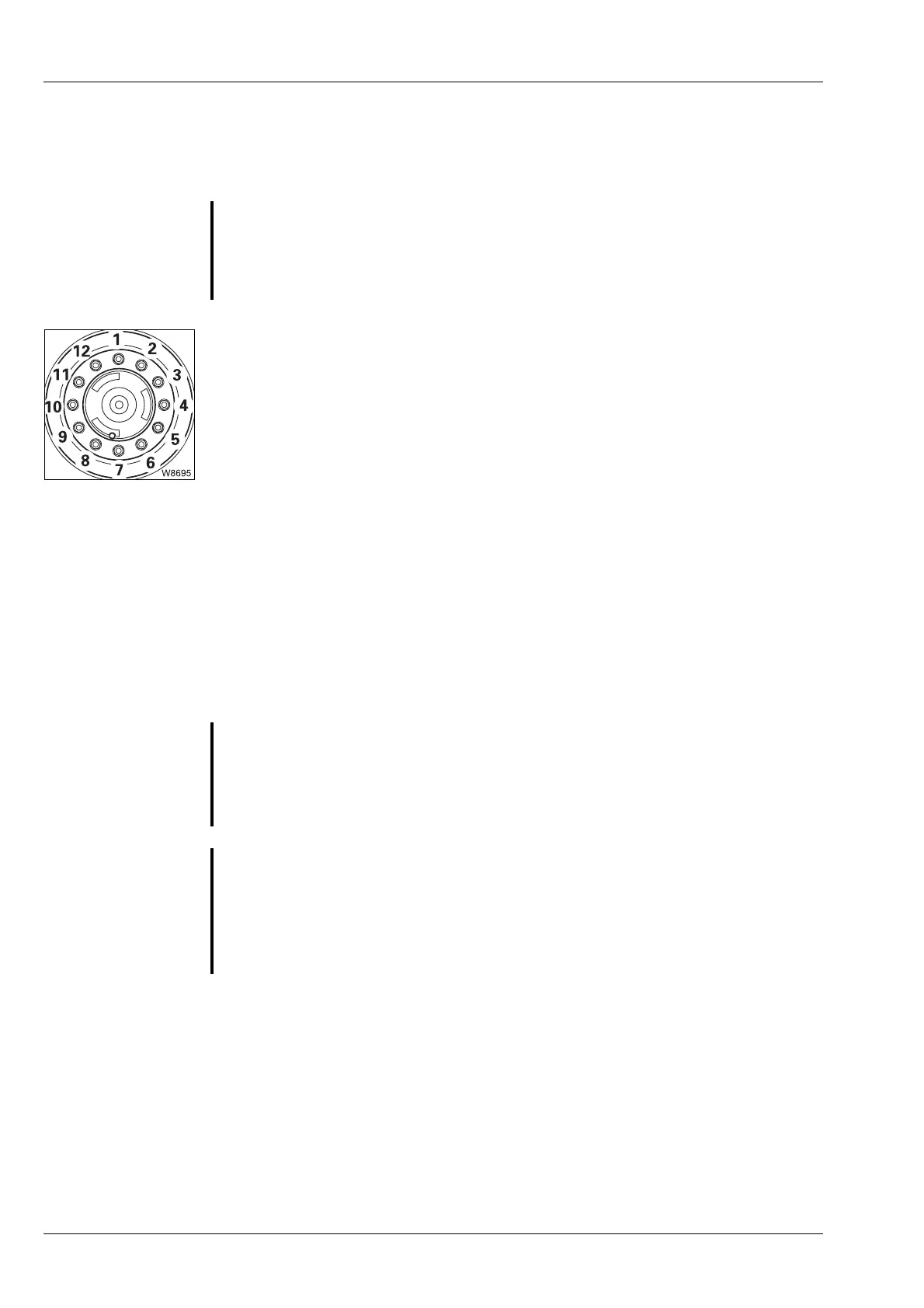